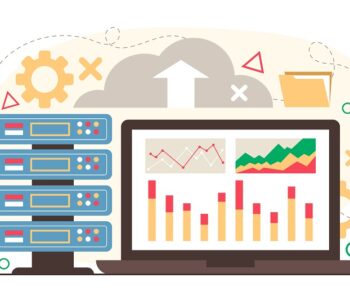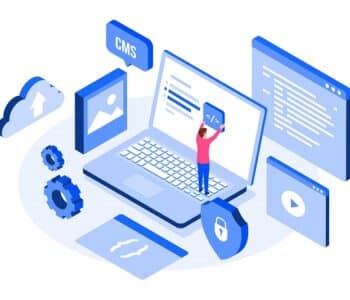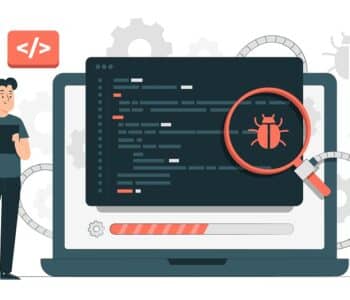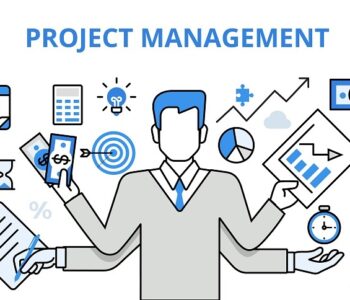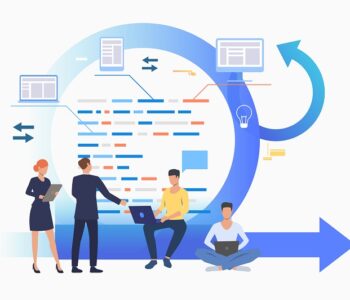 Software Industry
Software Industry Debunking the Top 5 Myths of the Software Industry…
Congratulations, fresh graduates! You’ve successfully completed your academic journey and are now ready to embark on a promising career in the software industry. As you step into this dynamic and ever-evolving world, you’ll undoubtedly come across various misconceptions and myths that may influence your perceptions and decisions.
In this blog, we’ll debunk the top 5 myths of the software industry and provide you with a clearer perspective as you begin your professional journey.
Myth 1: Software Development is Only About Coding
One of the most prevalent misconceptions is that software development solely involves writing lines of code. While coding is undoubtedly an essential part of the job, it is only a fraction of the larger process. Software development also entails requirements gathering, design, testing, debugging, documentation, and collaboration with team members and stakeholders. Successful projects require a multidisciplinary approach, and developers must possess strong communication, problem-solving, and analytical skills to thrive in this industry.
Myth 2: Expertise in One Programming Language is Enough
Many new graduates believe that mastering one programming language is sufficient to excel in the software industry. However, modern software development often involves working with various languages, frameworks, and tools. While it’s essential to have a solid foundation in a primary language, being adaptable and open to learning new technologies is equally vital. Embrace the concept of lifelong learning, as technology continuously evolves, and staying relevant is crucial for a successful career.
Myth 3: Work-life Balance is Non-existent in the Software Industry
It’s true that the software industry can be fast-paced and demanding, but the notion that work-life balance is non-existent is a myth. Employers in the tech sector are increasingly recognizing the importance of employee well-being and productivity. Many companies offer flexible work arrangements, remote work options, and prioritize a healthy work-life balance. It’s essential to communicate your needs and boundaries effectively while seeking employers that align with your values.
Myth 4: Only Coding Skills Matter for Career Advancement
Technical skills are indeed essential for career growth in the software industry. However, excelling in your career requires more than just technical prowess. Soft skills, such as effective communication, teamwork, leadership, and problem-solving abilities, are equally crucial. Being a team player and demonstrating leadership potential can open doors to managerial and leadership roles. Focus on honing both technical and soft skills to enhance your professional growth.
Myth 5: Software Development is a Solitary Endeavor
Another common misconception that fresh graduates may encounter is the belief that software development is a solitary endeavor, where developers work in isolation, glued to their screens. In reality, software development is a highly collaborative process that involves teamwork, effective communication, and coordination among various stakeholders.
Modern software projects often require cross-functional teams, including developers, designers, product managers, quality assurance engineers, and more. Each team member brings unique expertise and perspectives to the table, contributing to the success of the project.
Collaboration is crucial for brainstorming ideas, making informed decisions, and solving complex problems. Team members must communicate effectively, share knowledge, and work together to deliver high-quality software products. Embracing teamwork and cultivating strong interpersonal skills will not only enhance the quality of your work but also create a more enjoyable and supportive work environment.
By breaking down this myth and recognizing the significance of teamwork in software development, you’ll be better prepared to thrive in the industry and contribute to successful projects that make a real impact. So, embrace collaboration and foster a positive team dynamic as you embark on your software development journey!
Conclusion
As you step into the software industry, it’s essential to separate myths from reality. By acknowledging and debunking these common misconceptions, you can approach your career with a more informed and balanced perspective. Embrace continuous learning, develop a wide range of skills, maintain a healthy work-life balance, and be mindful of the industry’s challenges and biases. Remember, your journey in the software industry is a marathon, not a sprint, and staying adaptable and open-minded will lead you towards a successful and fulfilling career. Best of luck on your exciting new adventure!


















